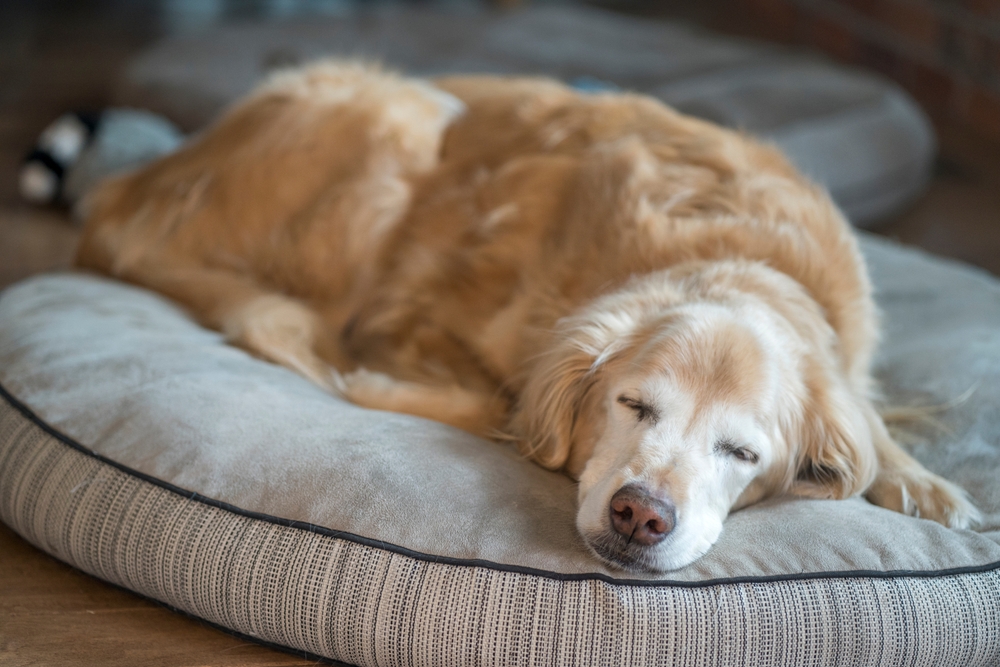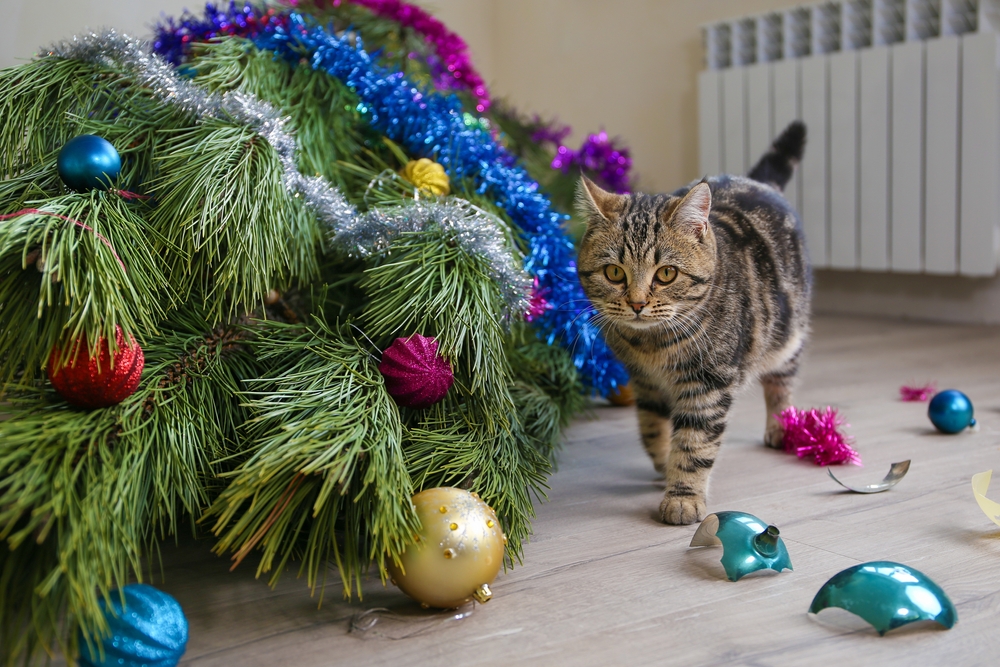The holidays should be filled with joy, peace, and love, but if your pet sustains an injury, your lovely holiday bliss is shattered. Many holiday season trappings, including foods, decorations, and parties, can be hazardous to your pet’s wellbeing. Our Lytle Veterinary Clinic team is here to remind you that when you prepare for the holidays, always keep your furry pal’s safety in mind. Read about seven common holiday hazards and how you can avoid them to prevent a pet emergency.
#1: Holiday foods and pets
Holiday foods present myriad pet hazards, all of which can result in serious illness or, in the worst case, death. You can help your pet avoid these issues by asking guests to refrain from sharing food with your pet, using gates or other barriers to keep pets out of the kitchen, properly storing leftover foods, and immediately taking out food-containing trash. Pets’ potential holiday food hazards include the following:
- Toxicity — Chocolate, xylitol, grapes, raisins, onions, garlic, macadamia nuts, yeast dough, and alcohol are common holiday food and drink ingredients that can poison your pet. Signs vary widely but can include vomiting, disorientation, tremors, seizures, collapse, or changes in thirst and urination.
- Pancreatitis — Fatty food consumption, including meat scraps or gravy, can cause susceptible dogs to develop pancreatitis. Signs include vomiting, abdominal pain, dehydration, fever, and lethargy. Severe pancreatitis can be deadly.
- Foreign body obstruction — Bones, corncobs, or trash can become lodged in a pet’s digestive tract and require emergency surgical removal. Signs include vomiting, belly pain, and sometimes fever.
#2: Christmas trees and pets
Your Christmas tree is a major holiday pet hazard. An overzealous pet can topple an unsecured tree, which could fall on them or cause ornaments to shatter and cut their feet. Secure your Christmas tree to a wall or the ceiling, especially if you have a cat who likes to climb. In addition, the water in a live tree’s base can contain toxic fertilizers. Place a puppy pen around the tree base to keep your pet away from the tree water and protect gifts from being unwrapped early.
#3: Tinsel and pets
Tinsel is shiny and attractive, especially to cats. When swallowed, these metallic pieces can cause a linear intestinal foreign body blockage, which causes the intestines to bunch up internally and quickly become damaged. As with other foreign body ingestion, tinsel ingestion usually requires emergency surgery. Similar items, such as ribbons, can cause comparable problems. If you have a curious cat, consider forgoing these items in your decor scheme.
#4: Snow globes and pets
Some snow globes contain ethylene glycol, the same highly toxic ingredient that causes antifreeze ingestion poisoning. If you have a beloved snow globe collection, ensure you display them out of your pet’s reach. Displaying snow globes inside a case or in a room that is off-limits to your pet may help prevent an accident.
#5: Holiday plants and pets
If your pet ingests common holiday plants, including poinsettia and holly, they can experience mild toxicity signs, including vomiting, drooling, or diarrhea. Mistletoe can cause seizures or low blood pressure if your pet ingests a large amount of this plant. The most dangerous plants are lilies, even the pollen is hazardous. If your cat brushes against or takes a small nibble of a lily, they can experience rapid and often deadly kidney failure. Be careful where you place decorative plants in your home, and if you have a cat, avoid lilies at all costs.
#6: Electrical cords and pets
Where decorations are placed, electrical cords likely follow. If your pet chews an electrical cord, they can sustain an electrical shock and burn, or start a house fire. Hide electrical cords behind or under existing furniture, use cord protectors, or keep your pet out of rooms in which you have electronics or string lights. In addition, unplug electrical cords before leaving the house or going to sleep.
#7: Holiday parties, houseguests, and pets

Party guests or those who are staying overnight can stress all but the most outgoing and social pet. Your pet will likely need a break and some alone time during the holidays, so create a quiet space for them to retreat. For your dog, this might be a crate or pen set in a room away from the gathering areas. For your cat, try a large closet or little-used spare room. Outfit your pet’s quiet space with familiar-smelling items, comfy bedding, a basket or box for your cat, and soothing music to muffle excessive noise.
To help your pet avoid a holiday emergency, follow our planning and preparation tips. Schedule your pet’s preholiday checkup and discuss additional strategies for reducing holiday dangers with our Lytle Veterinary Clinic team. If your pet has a holiday emergency when our office is closed, reach out to your nearest veterinary emergency clinic, the American Society for the Prevention of Cruelty to Animals (ASPCA) Animal Poison Control Center, or the Pet Poison Helpline.







Leave A Comment